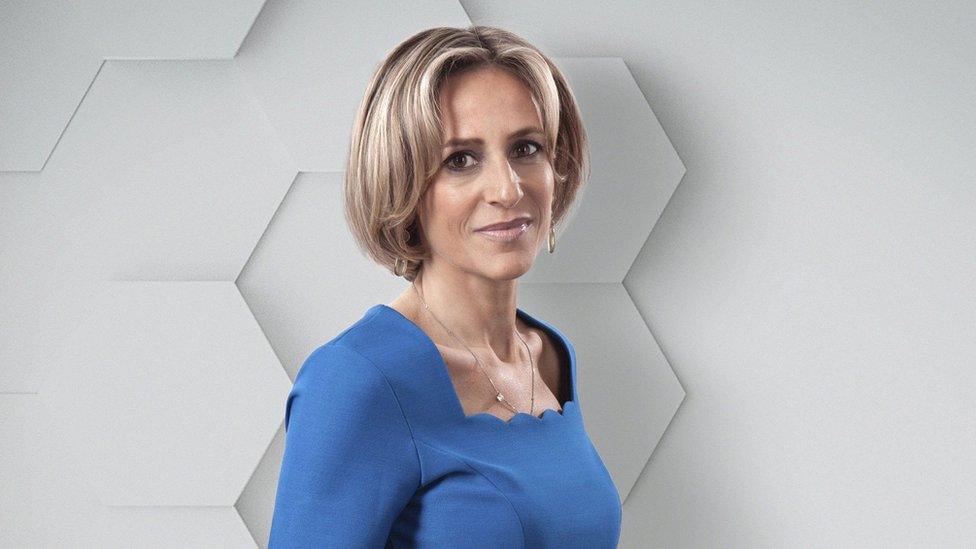Tory leadership race: Your views on leadership candidates' debate
- Published
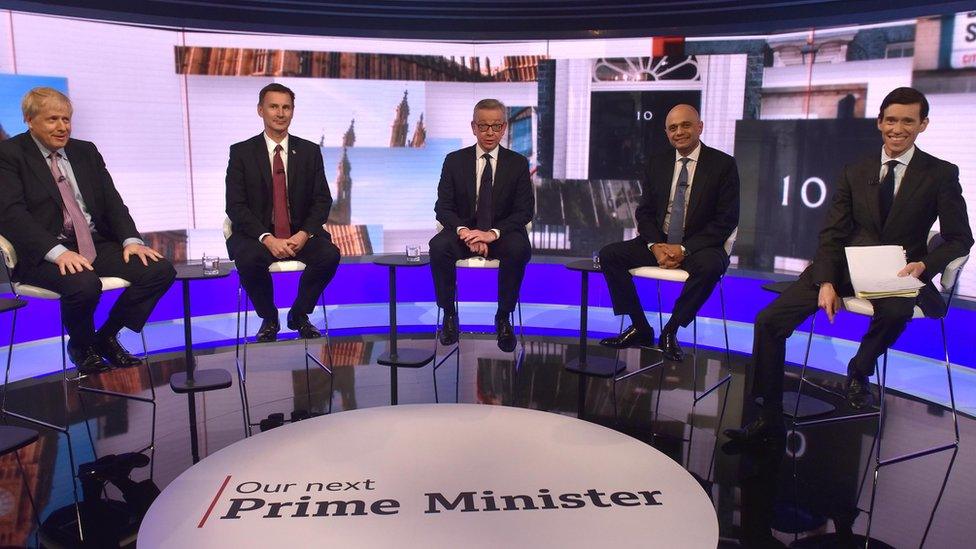
The five remaining candidates met at BBC Broadcasting House in London for their latest debate
Brexit and Islamophobia dominated the second TV debate faced by the Conservative Party leadership contenders.
The five remaining candidates met for the Our Next Prime Minister debate on BBC One, during which they answered questions from members of the public.
But what did viewers make of their answers?
Speaking on a special programme which went out across BBC Local Radio in England on Tuesday evening, some callers felt none of the hopefuls were clear enough on how to move the country forward.
"They still don't live in the real world," said one woman.
It was the second time most candidates had gone head-to-head on TV, following a debate held on Channel 4 on Sunday.
However, it was the first to feature current frontrunner Boris Johnson.
The BBC had received thousands of questions, with other topics debated including the HS2 high speed rail project, public spending and climate change.
But, of course, Brexit dominated discussion in the debate, hosted by Emily Maitlis.

On the question of Brexit
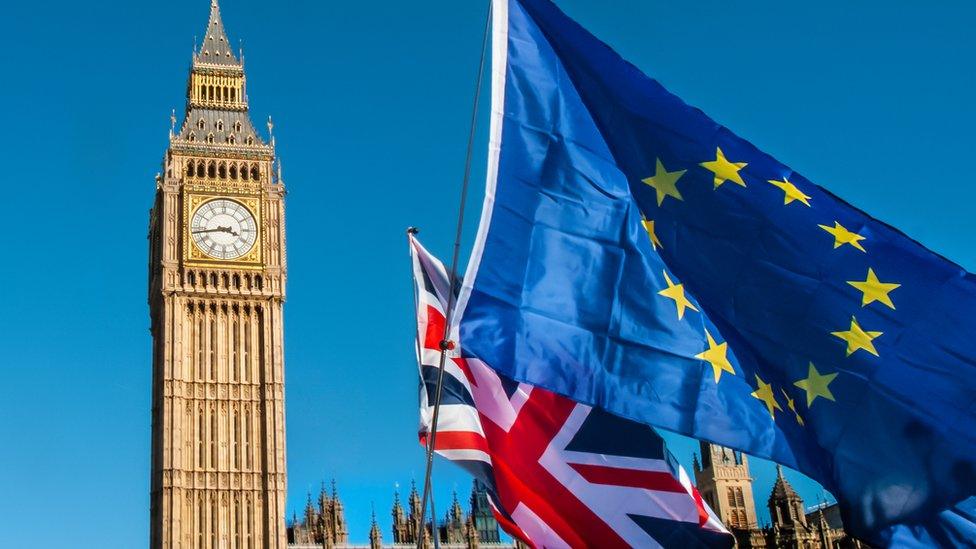
Brexit was the topic which dominated the debate
The deadline for exiting the European Union and whether that would be a no-deal scenario, were both issues put to the candidates.
Some viewers said they felt none of the hopefuls were clear enough on how to move the country forward.
Owen Reed, 19, from Bedworth, stood for the Tories in the local elections, but said he had now joined the Brexit Party.
He felt the candidates were not strong enough about leaving on 31 October and believes there has been a swing publicly in favour of no-deal, which he felt has not been recognised.
"From the debate tonight it became clear that time and time again they are not listening," he said.
"They are all going to Theresa May's deal again, they just want to change it cosmetically."
Chris Edwards, 34, from Colchester, felt none of the candidates "seem to believe in leaving the EU".
"They were all saying leaving without a deal is basically Armageddon but we should prepare for it just in case," he said.
"It was in British law that we were supposed to leave on 29 March... I feel like the chance has gone."
But Mr Edwards believes Mr Johnson has the best chance of securing a deal on 31 October, if he has the right cabinet.
"If he can get Jacob Rees-Mogg and Esther McVey in the cabinet they would be the real structure... and he could just be the celebrity," he added.
Robert Dugmore, 63, from Birmingham, said he found the debate "profoundly depressing".
"Whichever of those gentlemen gets elected at the end of July, nothing has changed in parliament," he added.
"They are going to go in, they don't have a majority, what are they going to do if they can't get it through?
"All they were doing was demonstrating the impossibility of the situation, they were kicking it around and I thought none of them were better than what we just got rid of."

Tackling Islamophobia
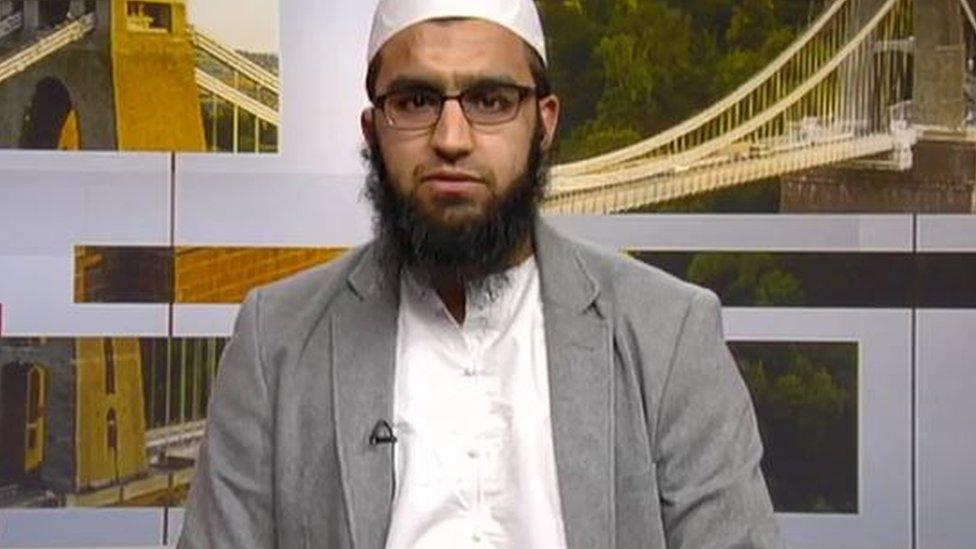
Abdullah Patel said he welcomed calls for a independent investigation into Islamophobia in the Conservative Party
Among those who appeared during the debate posing questions to the candidates was Abdullah Patel from Gloucester, speaking from a studio in Bristol.
An imam, he said he had seen the everyday impact of "Islamophobic rhetoric" and asked whether candidates accepted that words have consequences.
Mr Patel said he had assumed the candidates would not answer his question, but was pleased with the promise of action.
Allow X content?
This article contains content provided by X. We ask for your permission before anything is loaded, as they may be using cookies and other technologies. You may want to read X’s cookie policy, external and privacy policy, external before accepting. To view this content choose ‘accept and continue’.
"Boris answered by speaking about his grandfather then going on to Iran and dodging the question, Gove used it to have a dig at Jeremy Corbyn and Jeremy Hunt thought it was the right time to start speaking about his own family rather than actually addressing the question and to be honest it is nothing less than I expected," he said.
On Wednesday it emerged Mr Patel had shared controversial tweets about Israel. He said he was sure he had not criticised his Jewish "brothers", but stood by criticism of Israeli policy.
A BBC spokesperson said: "Had we been aware of the views he expressed there he would not have been selected."
Mr Patel has also been suspended as deputy head of a girls' school in Gloucester.

Was there a winning candidate?
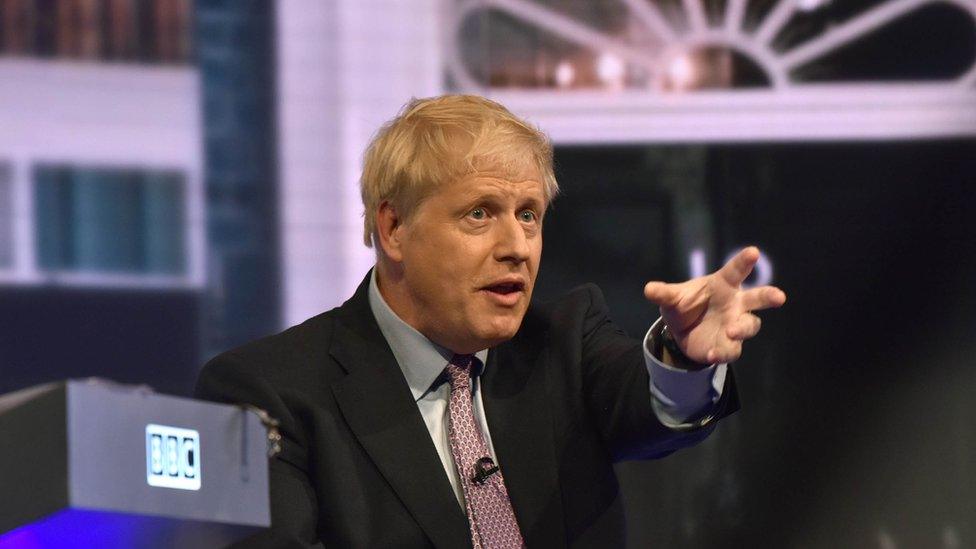
Boris Johnson is the current favourite
Boris Johnson might be the current favourite, but viewers had mixed opinions on whether there was an overall winner.
Mr Johnson's place in the lead was secured in the latest round of voting, securing 126 votes - 12 more than in the first round and 80 more than Mr Hunt who was in second place with with 46 votes.
Amy Green, 36, who is chair of her local Conservative association in Leeds, said: "I think Boris came head and shoulders above the rest of the candidates.
"He didn't get drawn into a lot of the back and forth like the other candidates did. He is clear with his ideas and his policy.
"A big Brexiteer, somebody who really campaigned hard for Vote Leave and I like that, that he has a commitment to take us out at the end of October, come what may."
Marian Peat, 65, from Nottingham, a self-confessed Boris Johnson fan, said she felt he was treated unfairly compared to other candidates.
"The presenter was just going on about what he has said in the past," she said.
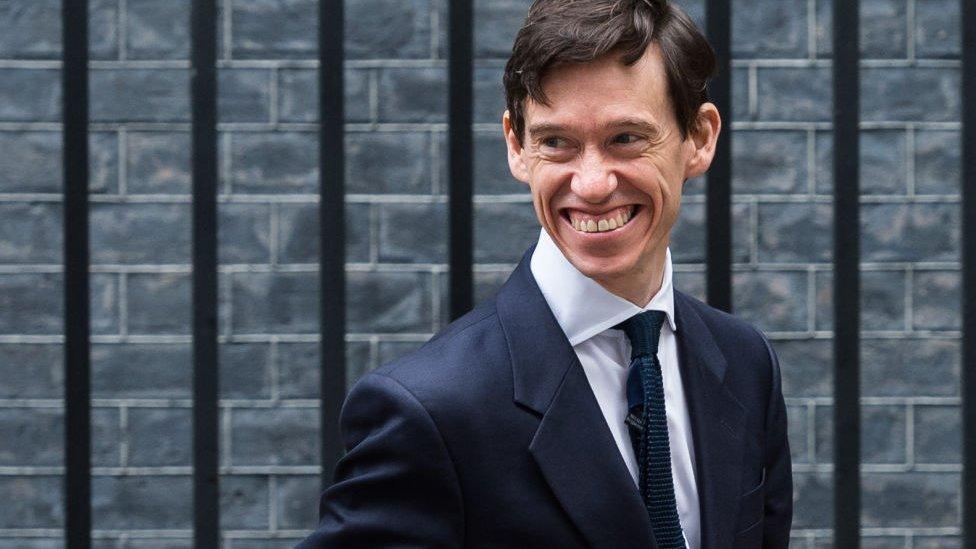
Rory Stewart was praised for being "realistic"
Rory Stewart was the "most impressive", according to David Savage from Essex.
The 74-year-old said: "All the others were making all sorts of promises, with no possibility of having them costed out properly, about reducing tax and all this sort of thing, and he did actually say, 'Let's be realistic about all this'."
But for Martin Letts, 76, from Southampton, Mr Hunt, the current foreign secretary, was the winner: "I think Jeremy Hunt came over as a statesman... his body language was very good.
"I think Jeremy came over as the most diplomatic statesman and he could therefore stand up to EU negotiations."
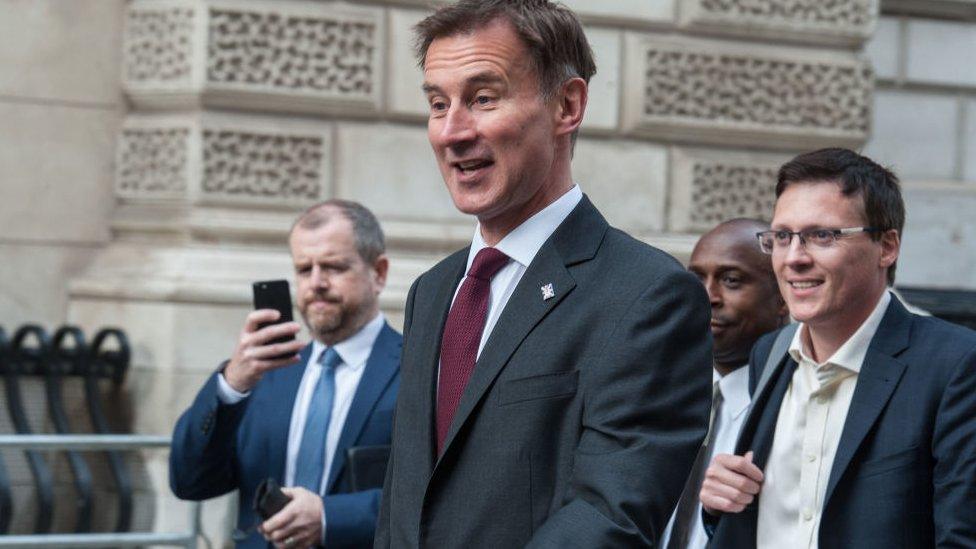
Other viewers described Jeremy Hunt as a "statesman"
But it was not a view shared by Chris Gray, 74, from Gosport - although she was unimpressed by all of the candidates.
"They still don't live in the real world," she said.
"I picked up on the fact that they kept having digs at Jeremy Corbyn, I think perhaps they are running a bit scared of him.
"It was a lot of waffle. They are just not dealing with the proper issues."

What happens next?

The candidates face the next round of eliminations on Wednesday, with the final two likely to be known by the end of the week.
And although the winner will become the country's next prime minister, the only people eligible to vote will be Conservative Party members.
None of the candidates in the debate said they would be keen to take the country to another general election while the issue of Brexit still looms.
But that was not something Elliott Curtis, 43 from Malmesbury, Wiltshire, found acceptable.
"It was a good debate tonight but I think the final vote and say should be down to the general public to vote on the next PM," he said.
- Published19 June 2019
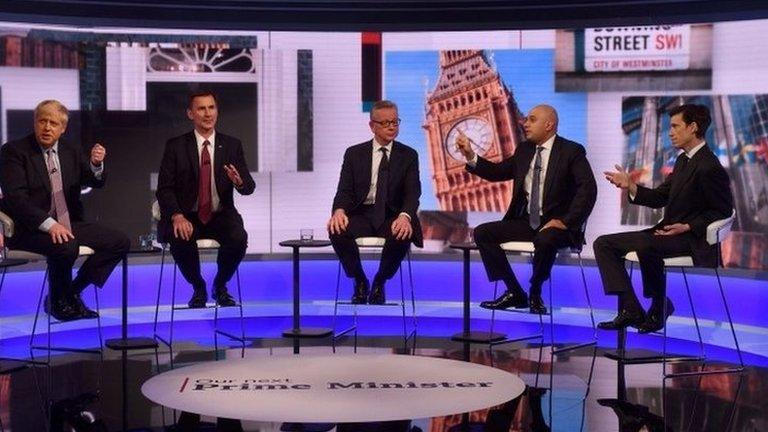
- Published18 June 2019

- Published17 June 2019
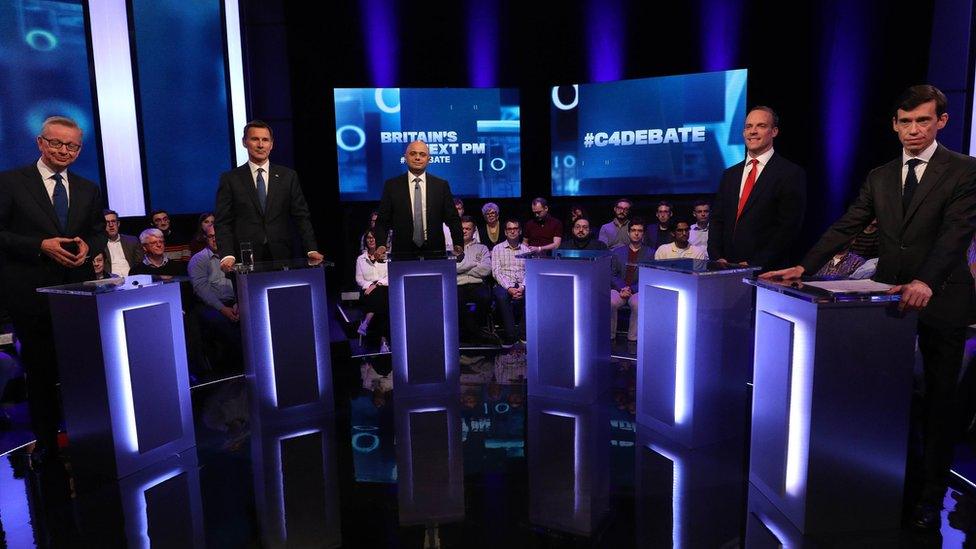
- Published17 June 2019
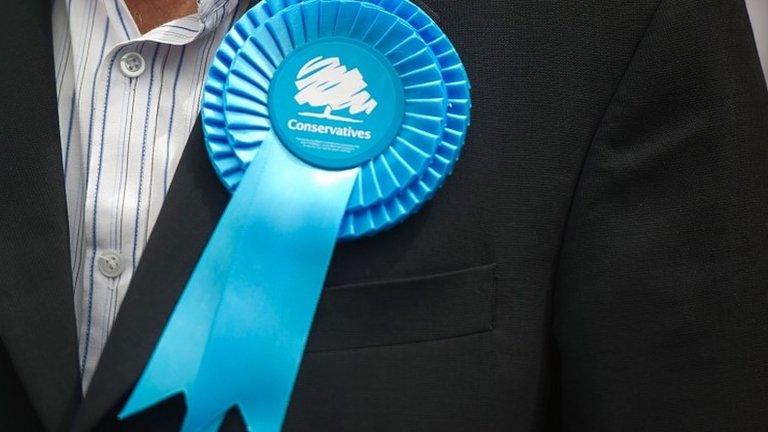
- Published17 June 2019
- Published17 June 2019
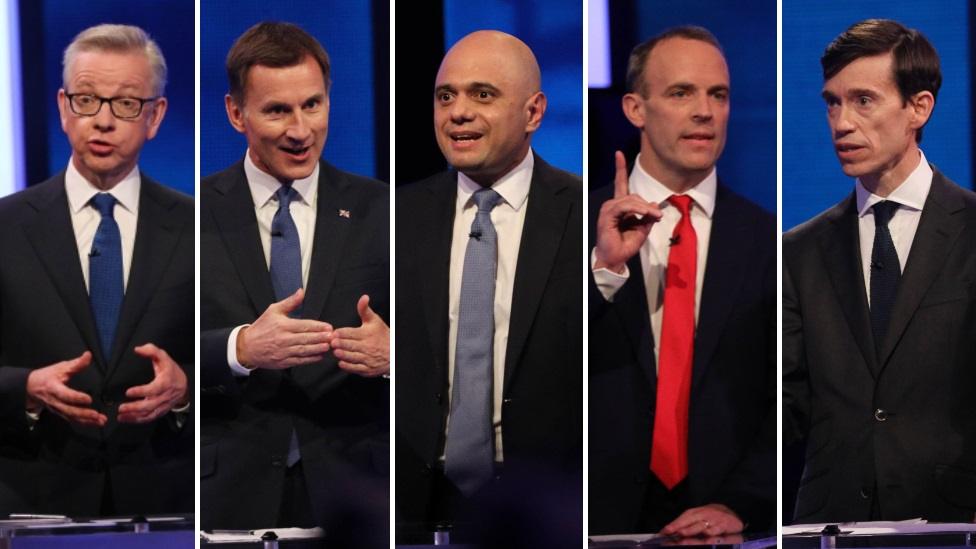
- Published18 July 2019
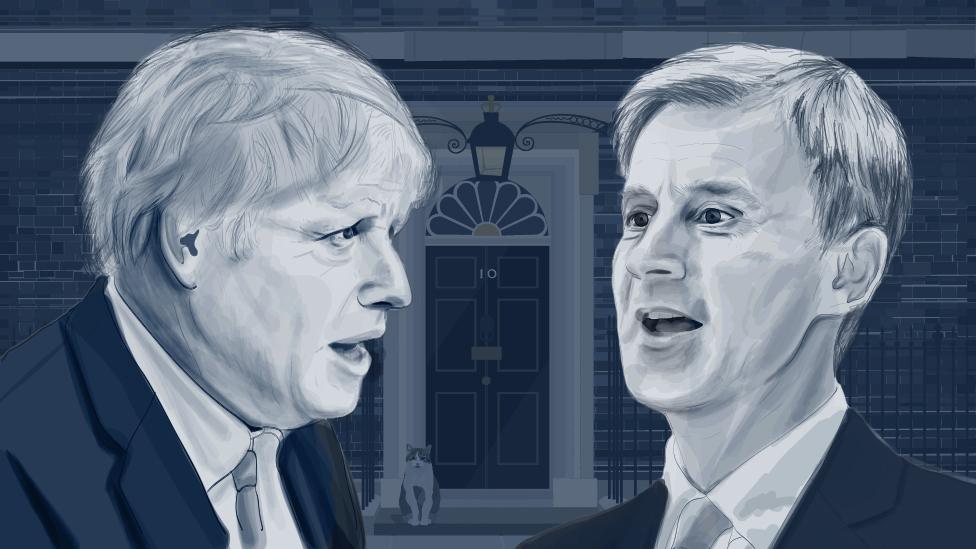
- Published23 July 2019
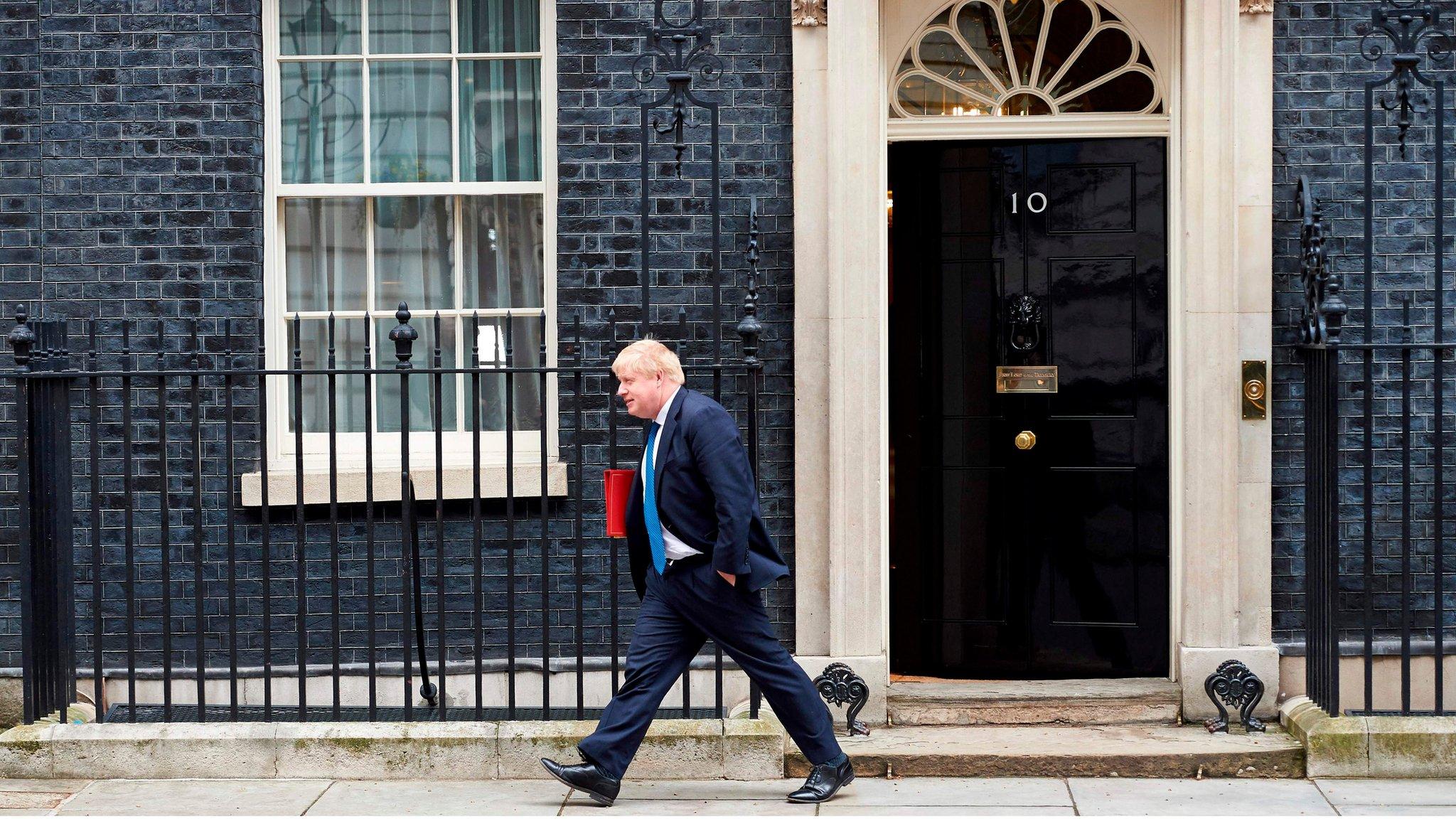
- Published10 June 2019
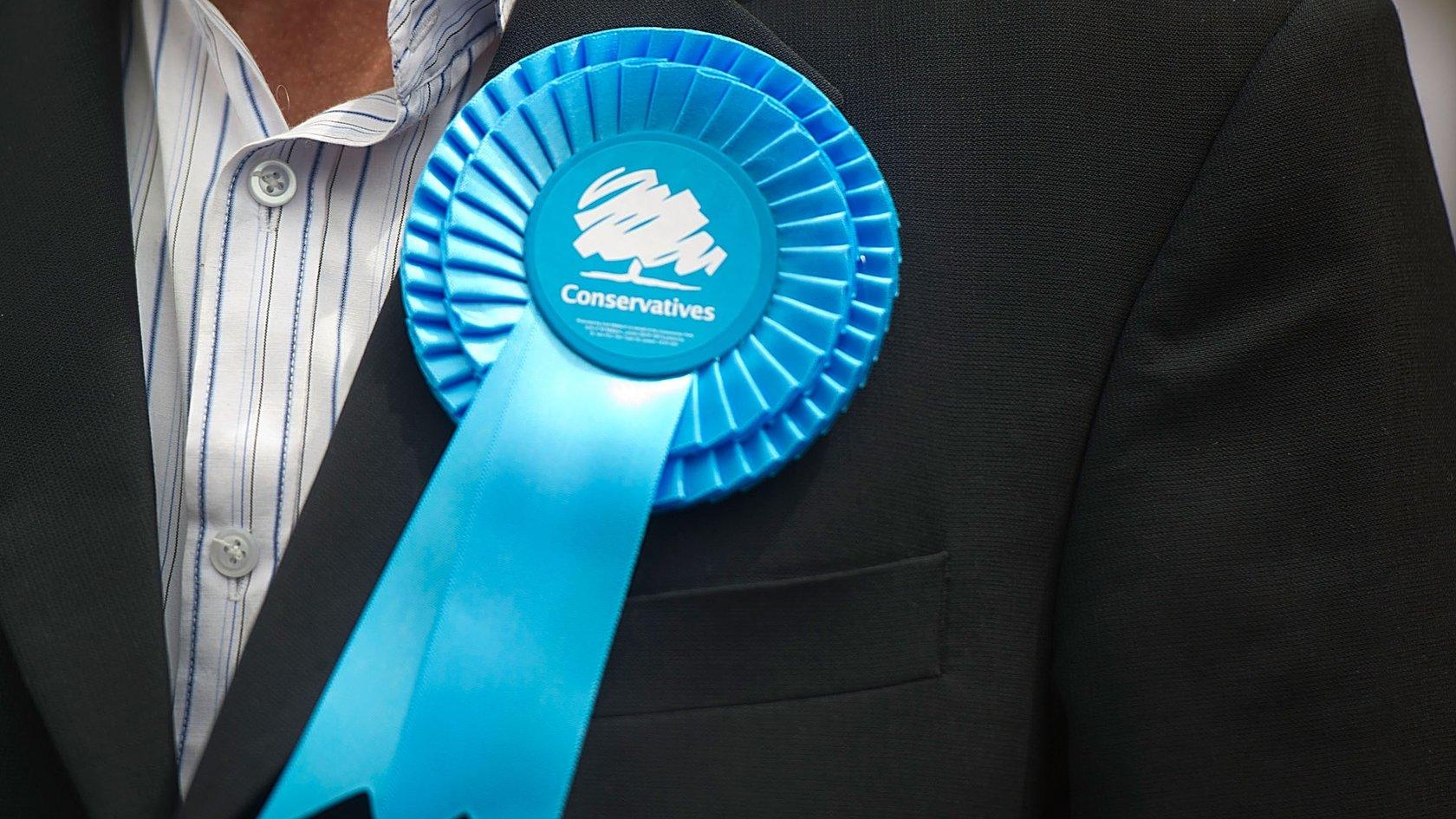
- Published10 July 2024
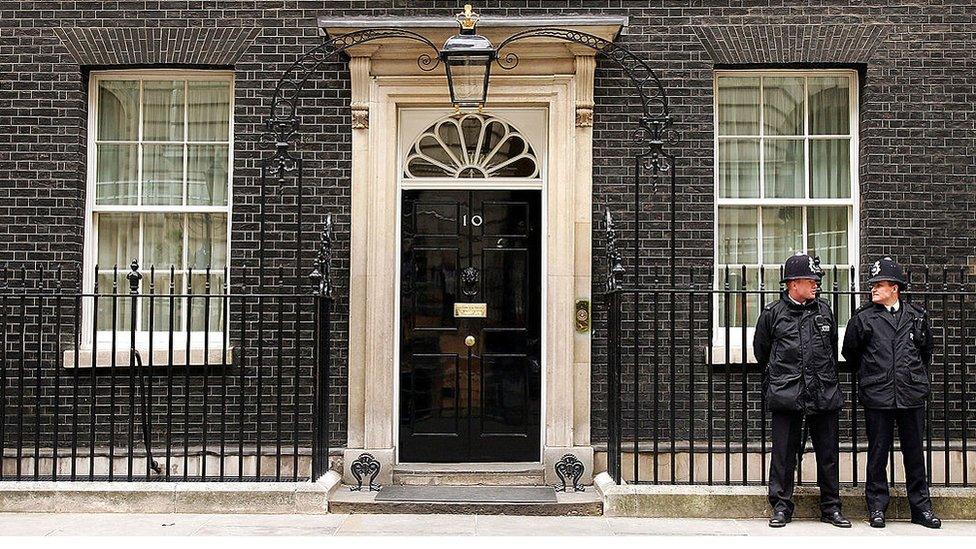
- Published7 June 2019
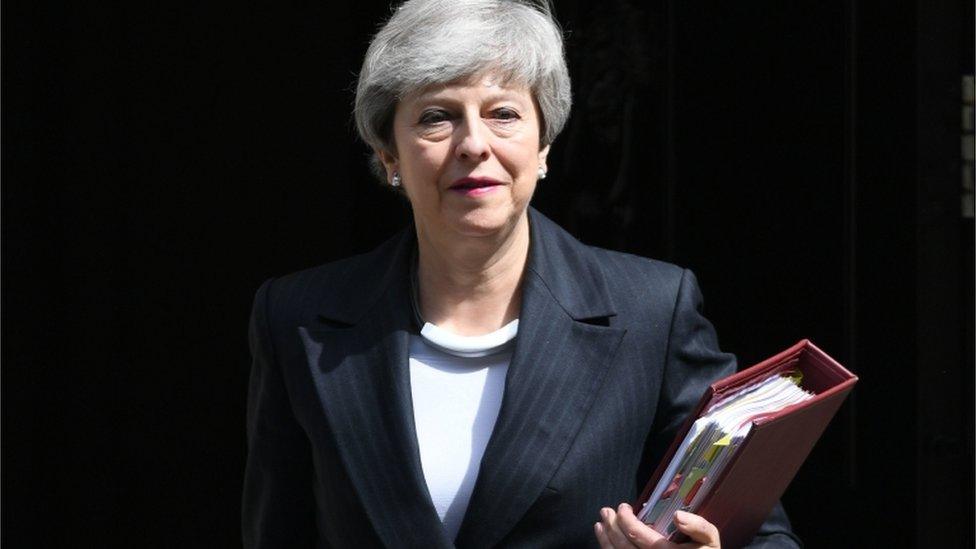
- Published6 June 2019
